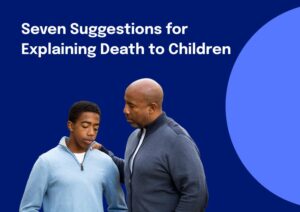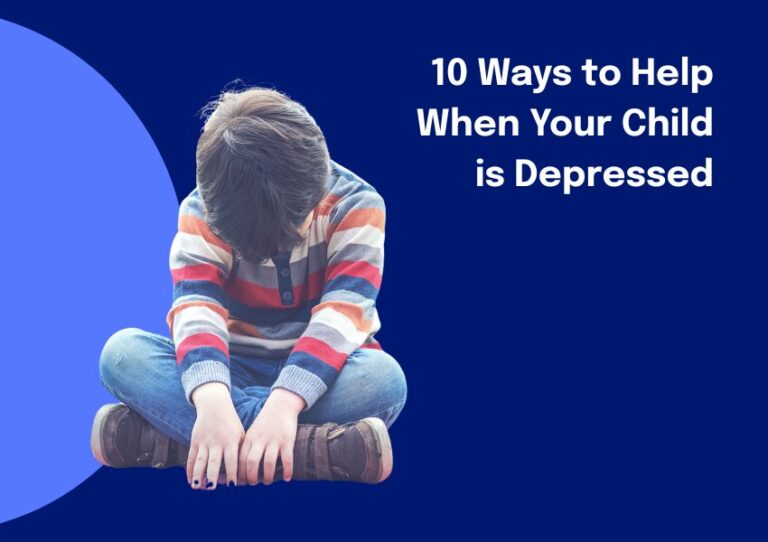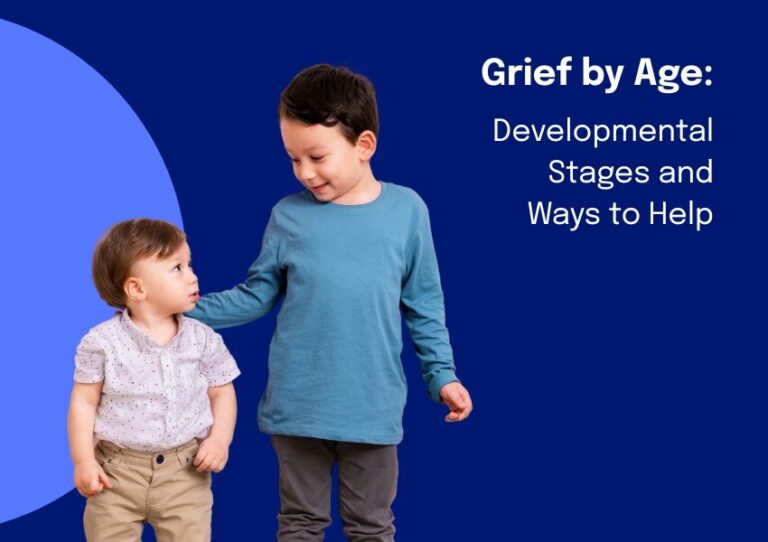Seven Suggestions for Explaining Death to Children

Seven Suggestions for Explaining Death to Children
1. Explain the immediate cause of death simply and honestly: Avoid euphemisms or giving a philosophical or religious interpretation.“Your father died of a disease called cancer.” rather than “God took your father because he was a good man.” or “Your Dad is visiting Heaven.” or “Your dad died because he was very sick.”
2. Offer reassurance about their fears: Children who experience the death of a loved one often fear for themselves or the lives of other family members. Talk openly and honestly with children explain that “most people live ‘till they are very old.”
3. Offer reassurance that they are not to blame for the death: Many times children believe that they “caused” the death because of misbehaving or arguing or wishing harm. Clearly explain that this does not cause someone to die.
4. Use correct terminology when explaining what happens to the body when someone dies: Clearly state that the person’s body has stopped working, that the person has died, and that they won’t be coming back. Explain the process for burial/cremation and make it clear that the person cannot feel any pain.
5. Develop a plan with children: Decide and explain to them who will care for and love them should something happen to you. “Mommy doesn’t plan on anything happening to her but if something does, Aunt Jenny will be there to take care of you.”
6. Include children in family mourning rituals: Explain what they can expect to happen during the ritual and ask them if there is anything special that they would like to say or do. Have a caring adult there to support them and answer any questions they might have.
7. Accept children’s feelings about the death: Children often have a wide range of emotions after a death. Children grieve differently than adults. Developmentally they can only handle small amounts of pain/grief at a time; therefore, they may be openly sad one moment and happily playing the next. This is normal behavior especially for younger children.
En Español: Siete Sugerencias para Explicar la Muerte a los Niños/as/xs
Visit Our House for More Resources



